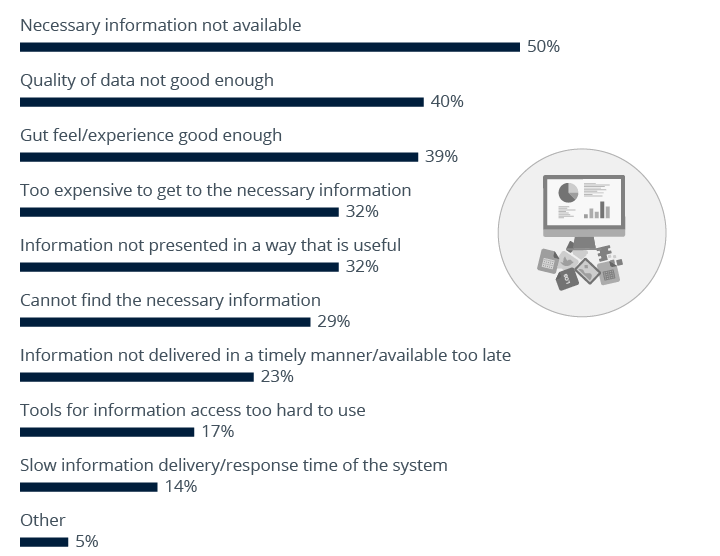
Top reasons for not using information for decisions (n=712)
The most commonly cited reason for not using information or data as the basis for decision-making was that the relevant information was not available. This result is consistent across all company sizes. Significant investments in data warehouses and business intelligence systems over the last twenty years have clearly not been sufficient to fill this information gap, and big data might complicate the issue even further.
The quality of data, cited by 40% of respondents, is the second most common barrier to data-based decision-making. This reflects a need for more attention to be paid to data quality and more efficient data governance. Given that 62% of companies want to treat information as an asset in the future, it is critical that organizations invest in protecting the quality and value of that asset.
39% of companies state that gut feel/experience is good enough to make decisions with no relevant information. One might have expected gut feel/experience to be the most common reason for making decisions without information to hand. However, the most popular reasons all point to the suggestion that companies prefer to base their decisions on accurate information if it is readily available.
Nearly a third of respondents claim that it’s too expensive to gather the necessary information, an issue that emerging big data technologies might have the potential to unlock.
The usefulness of information presentation is an issue for almost a third of respondents overall.
Information Culture Report
Leveraging the power of collective intelligence for better decision making
Request the free report now





